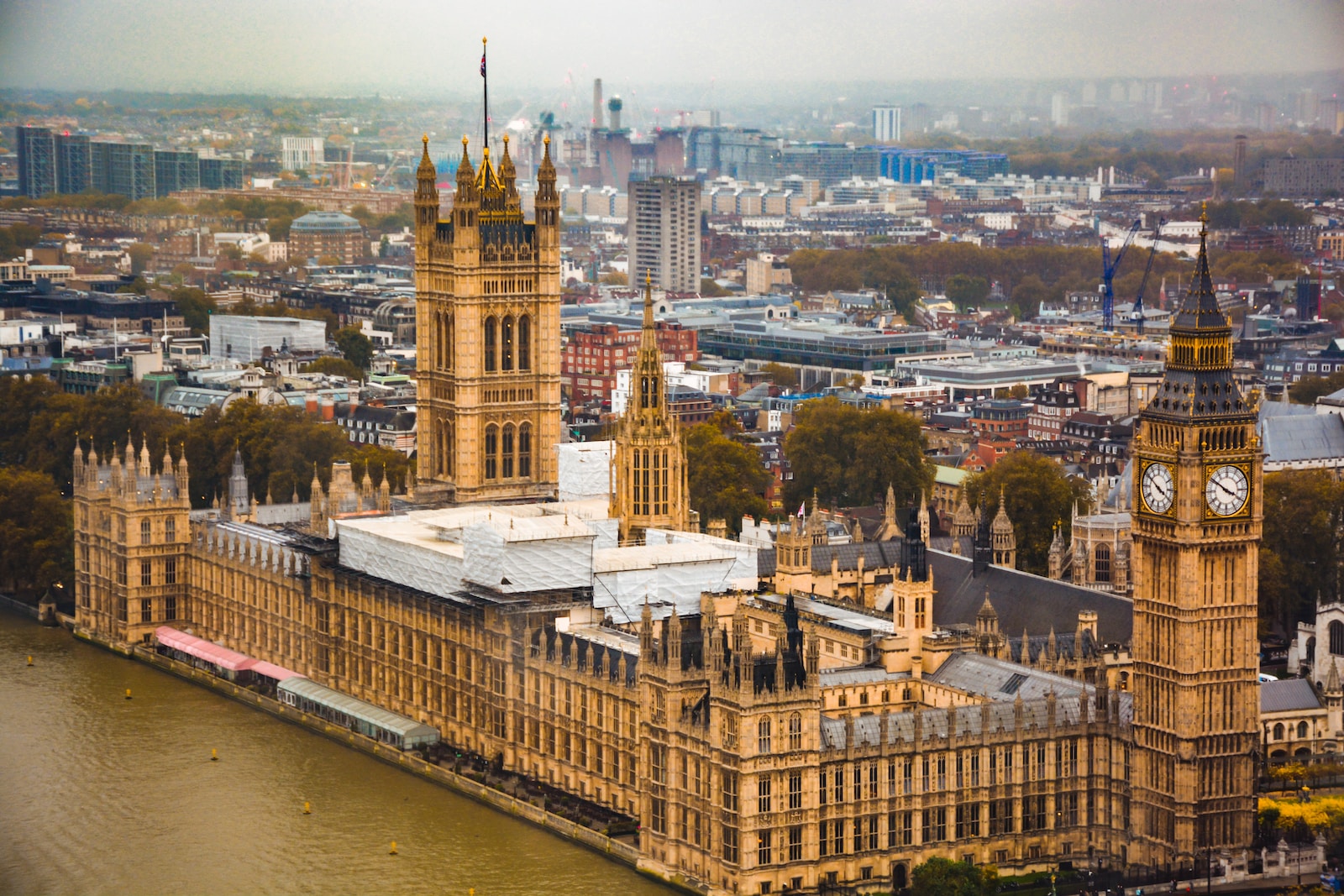Welcome back to our Weekly Digest. Read on for the latest updates and some ideas to help us all move forward.
Over 20 Million People Administered With Two Shots of COVID-19 Vaccines
The UK passed the milestone of vaccinating 20 million adults with two shots of COVID-19 vaccines on 16 May, just a day before restrictions were further eased. This represents 38.2% of the adult population.
UK Unemployment Rate Fell for Third Consecutive Month
The quarterly unemployment rate was down to 4.8% from 4.9% in February, declining for three months in a row, according to ONS. This is amid broader signs of recovery in the jobs market, as companies gain more confidence due to the progress of the COVID-19 vaccination programme.
The number of people seeking work dropped to 1.6 million in the three months ending March, compared to 1.7 million in the three months to February.
All UK Sectors Growing for the First Time Since August 2018
The number of sectors in the UK reporting output growth climbed to pre-pandemic levels in April, according to the latest Bank of Scotland UK Recovery Tracker. This marks the first time that all of the 14 monitored sectors gained since August 2018.
Manufacturers of technology equipment (67.7) and metals and mining products (66.3) recorded the strongest growth for the second consecutive month.
British Business Bank Urges Businesses to Grab Start-up Loan
The British Business Bank is running a loan scheme for new businesses in hopes to help rebuild the economy. Through its partner, the Start Up Loan company, the bank is funding loans of up to £25,000.
Taking advantage of this unsecured personal loan will give you access to free support and guidance in developing your business plan. Successful applicants will also get up to 1 year free mentoring.
Changes to COVID-19 Restrictions
As lockdowns and social restrictions eased on 17 May, BBC has created a comprehensive compilation of how rules have changed. Here’s a quick summary:
England
- People can now meet indoors in groups of up to six or two households, or in groups of up to 30 outdoors.
- Pubs, bars and restaurants can serve customers indoors
- Museums, cinemas, children’s play areas, theatres, concert halls and sports stadiums can all reopen, as can hotels
- Social distancing guidance is changing and contact with other households like hugs is a matter of personal choice
Scotland (except Glasgow and Moray)
- People can meet indoors in groups of six from up to three households, and up to eight people from eight households can mix outdoors.
- Pubs and restaurants can serve alcohol indoors until 22:30
- Entertainment venues such as cinemas, theatres and bingo halls can reopen and up to 100 people are allowed at indoor events
Wales
- Pubs and restaurants can reopen indoors and customers can meet in groups of up to six from six households
- All holiday accommodation can reopen
- Cinemas, bowling alleys, museums, galleries and theatres can reopen
- No change to indoor socialising (still restricted to extended households where two households can mix and have physical contact)
VAT Penalty
For business owners who enrolled in the Coronavirus VAT Deferral Scheme, please be reminded of an upcoming deadline.
At the start of last year’s first lockdown, HMRC announced VAT payments due between 20 March 2020 and 30 June 2020 could be deferred and paid back by 31 March 2021.
Now, the HMRC has issued a reminder that if the deferred amounts are not paid by the end of June, there will be a 5% penalty and interest. So please make sure that you pay the amounts by that date.
Alternatively, if you’re still struggling to pay in a single instalment, you may opt into this new payment scheme until 21 July 2021. This will spread the repayment over the period to 31 March 2022. The number of instalments available will depend on when you joined the scheme:
- before 19 May 2021 – nine instalments
- before 21 June 2021 – eight instalments
Feel free to message us if you have any questions.
Debt Respite Scheme ‘Breathing Space’ Launched
Around 700,000 people struggling with debt problems will benefit from a new debt respite scheme called Breathing Space.
Under this scheme, those facing financial difficulties will be given 60 days to get their finances back on track, with most interest and penalty charges frozen, and enforcement action halted.
Professional debt advice will also be provided. Recognising the link between debt problems and mental health issues, these protections will be available for those in mental health crisis treatment for the full duration of their crisis treatment plus another 30 days.
Over £150 Million Funding for New ‘Help to Build’ Scheme
The new £150 million ‘Help to Build’ scheme will make it easier and more affordable for people to build their own homes. New homes can be made to order or built from scratch, and will benefit small building firms as part of the government’s Plan for Jobs.
Also, a £2.1 million additional funding has been announced to help communities decide where they want new homes, shops, and offices to be built and what they should look like.
Support for Disabled Jobseekers
The government will boost the number of specialist advisers dedicated to helping disabled jobseekers to secure and stay in work, with an additional 315 Disability Employment Advisor (DEA) roles to be in job centres across the UK by May 2021. This will bring total numbers to 1,115 once the process is complete.
Recovery Loan Scheme Launched
The government has launched a new Recovery Loan Scheme to help companies access loans of £25,000 up to a maximum of £10 million. The loans will include 80% government guarantee and interest rate cap of 14.99%.
This is in addition to the extended furlough until 30 September and the New Restart Grants scheme.
Job Retention Scheme Extended Until End of September
The Coronavirus Job Retention Scheme has been extended until 30 September 2021. It will remain unchanged until the end of June, and a phased reduction in the level of funding will be implemented from 1 July 2021.
Currently, employers can claim grants equal to 80% of a furloughed employee’s reference pay. Grants for each worker are capped at £2,500 per month.
For claims starting 1 July 2021, the grant will be reduced to 70% of the reference salary and capped at £2,187.50 per month. It will be further reduced to 60% of the reference salary with a cap of £1,875 starting 1 August 2021.
You can read more about it here.
£20 Million SME Brexit Support Fund Launched
A £20 million SME Brexit Support Fund has been announced to help businesses adjust to new customs, rules of origin, and VAT rules when trading with the EU.
Traders will be able to apply for a grant of up to £2,000 to pay for practical support for importing and exporting. This fund will help businesses prepare for the implementation of import controls that will take effect from April and July.
More details can be found here.
Ongoing COVID-19 Business Support From the Government
After almost a year of lockdowns and COVID-19 restrictions, many firms in the UK are still in need of support to stay afloat. Below is a comprehensive list of government support programmes that are available to your small business.
Kickstart Scheme grant
- Provides funding to create new job placements for 16 to 24-year-olds on Universal Credit
- Covers 100% of the National Minimum Wage (or the National Living Wage) for 25 hours a week for a total of six months
- Also covers National Insurance contributions
- Employers can spread the start date of the job placements until the end of December 2021
More information can be found here.
Self-employed Income Support Scheme
Deadline: Online claims service for the fourth grant will be available from late April 2021 until 31 May 2021.
- The fourth grant will be calculated at 80% of 3 months’ average trading profits and will be paid out in a single instalment capped at £7,500 in total.
- The fifth and final grant covering May to September can be claimed from late July. The amount will be determined by how much your turnover has been reduced in the year April 2020 to April 2021.
- The fifth grant will be worth 80% of 3 months’ average trading profits, capped at £7,500, for those with a turnover reduction of 30% or more.
- For those with a turnover reduction of less than 30%, the fifth grant will be equivalent to 30% of 3 months’ average trading profits, capped at £2,850.
More information can be found here.
Flick us a message if you need our assistance with your applications.
Building and Implementing a Business Resilience Plan
Resilience plans are designed to help businesses cope with unprecedented challenges and market disruptions. In this Forbes article, members of the Forbes Business Council shared critical tips to implement a resilience plan that works regardless of external factors.
- A resilience plan must start from the company’s mission, vision, and internal culture. Ensure your foundation is strong.
- Embrace tension instead of avoiding it. Engage in constructive dialogue to find a resolution to a specific challenge.
- Develop a roadmap for the overall vision of the company. Your resilience plan must involve adaptation, securities, continuity, and recovery.
- Cultivate a resilience mindset so your team can respond dynamically.
- Conduct solid market research and analysis to create effective future strategies.
- Keep your processes organised and adapt them when circumstances change to reduce friction in product or service delivery.
- Enhance adaptability without losing focus on your goals and mission.
- Focus on your customers’ pain points and uphold transparency and authenticity to provide exceptional customer experience.
- Establish what metrics to measure before you start. Test, listen to the data, and quickly adjust accordingly.
- Treat it like a fire evacuation plan— identify mission-critical operations and key assets and carry out a risk assessment.
- Take an iterative approach. Develop a plan of action, assess progress, and adapt as needed.
- Provide employees with access to content and technology they need, whenever and wherever.
- Focus on employee training and gaining their trust. Leave room for flexibility to empower employees to be creative to best serve the interest of the company and its customers.
Need expert help in developing a business resilience plan? Book a one-on-one consultation with us.
Get in touch
Contact us if you have any questions or want to discuss the next steps for your business.





